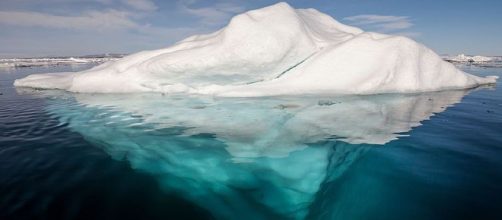The National Oceanic and Atmospheric Administration announced on Tuesday its yearly brief on the Arctic region. There could be a decline in the measurement of warming areas compared to what they have recorded in 2016.
Arctic northern region warms up twice faster
However, scientists are still worried because, on the farther northern region, the heating up is two-fold faster than the rest of the world. This phenomenon has attained a warming intensity that is unheard of in the 21st century.
Reports suggest that the Arctic is melting faster than ever and that the Arctic water has been discovered to be warming as well.
In addition, the sea ice is thawing at a high-speed rate in more than a millennium. Results of the research are then discussed at the American Geophysical Union meeting held in New Orleans.
Generally, the Arctic Sea Ice diminishes during the month of September and this year was the eight lowest ever recorded for the melting season. Researchers are most worried about what to expect in winter, notably March when sea ice is assumed to be developing to its highest levels, The Guardian reports.
Polar bears begin hunting
During this season, polar bears will start hunting for food before they slumber into their hibernating grounds for the winter. Polar bear specialist, Dr. Susan Crockford said that these animals are usually curious and will examine any strange objects that they see.
It is possible for starving polar bears to attack but Dr. Crockford notes at Polar Bear Science that these Arctic creatures remain fleshy from its feast in spring. She added that polar bears indulge less in summer.
On Wednesday, Dec. 13, the Arctic Report Card released a separate contemporary-reviewed report at the yearly American Geophysical Union fall meeting in San Francisco. The meeting was delivered together with all the works of 61 scientists who represented 11 nations around the world.
They reported on the significant development of air, ecosystem, land, and ocean. It serves as the major indicators used around the globe to monitor changes in the Arctic and how the changes might affect business, communities, and people in its entirety, NOAA notes.
According to the Arctic Researcher Program director, Dr. Jeremy Mathis the Arctic serves as a refrigerator to the world but it was left ajar while speaking at the yearly American Geophysical Union congregation in New Orleans.
Several scientists perceived US President Trump's decision to no longer be associated with the Paris Agreement is a shining confirmation of his cynicism toward human-induced climate change.


